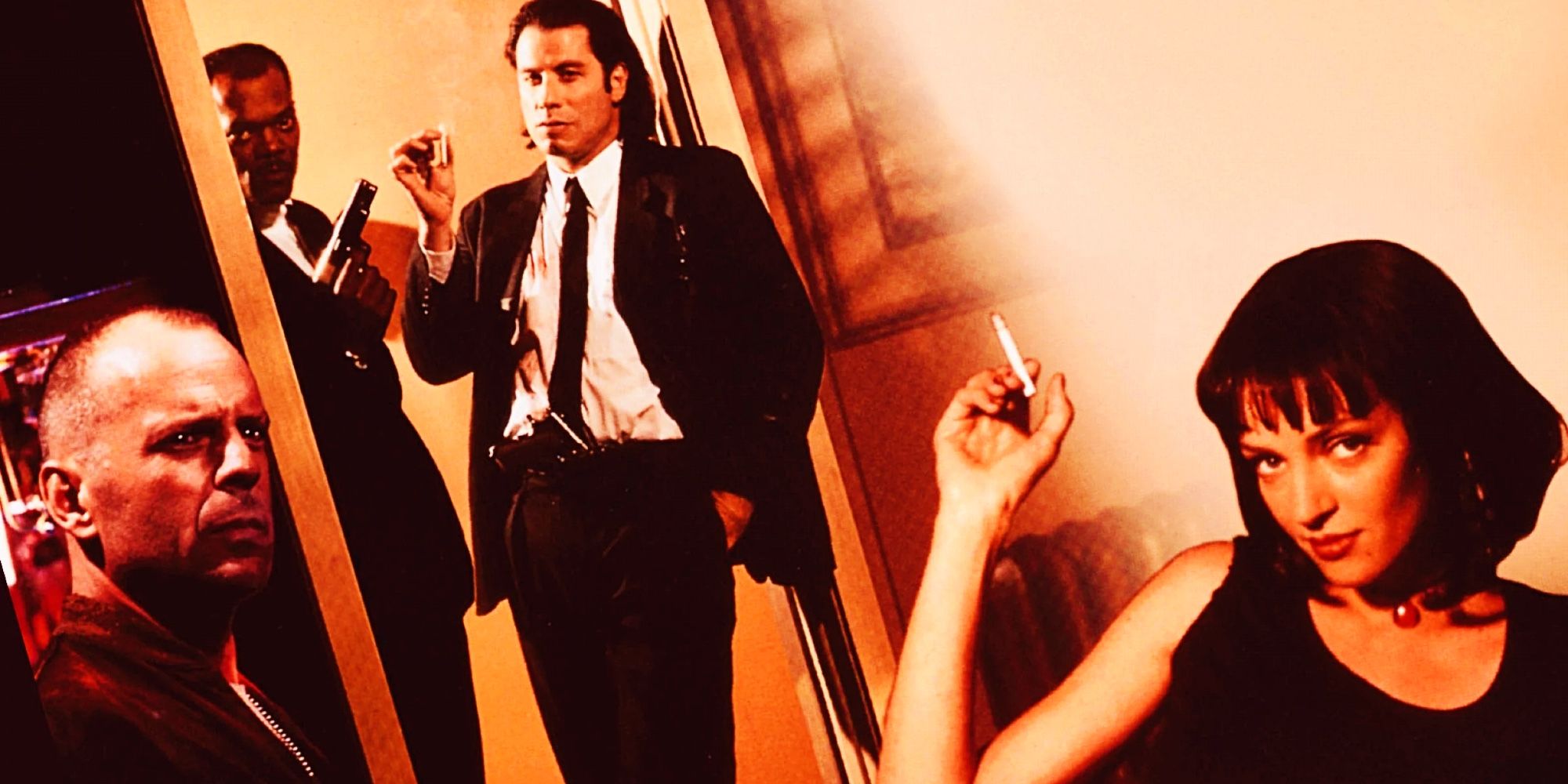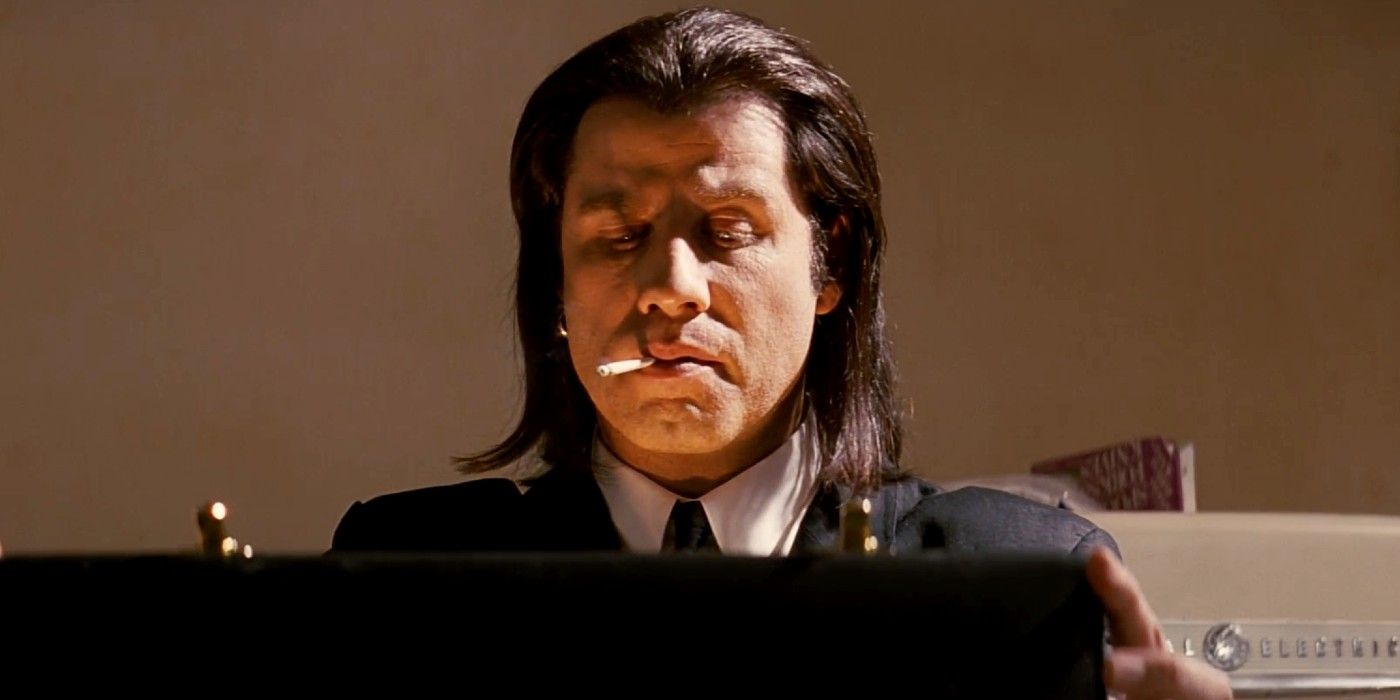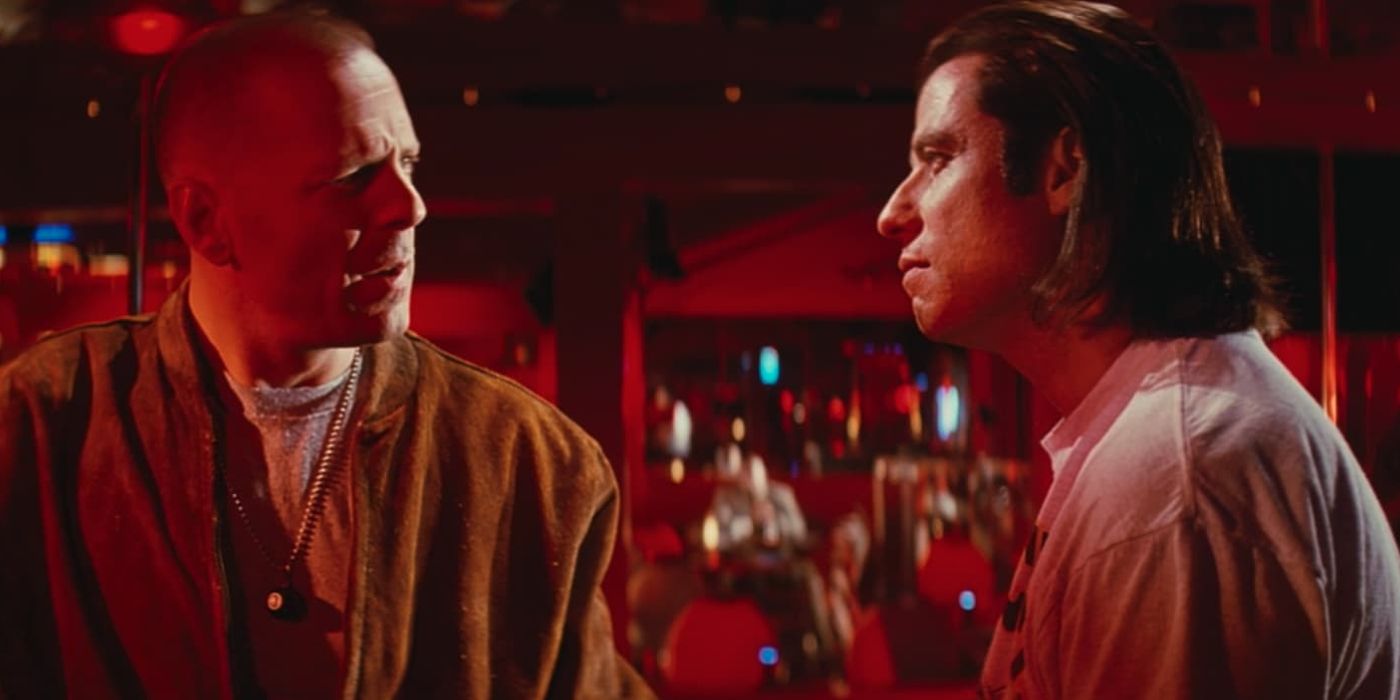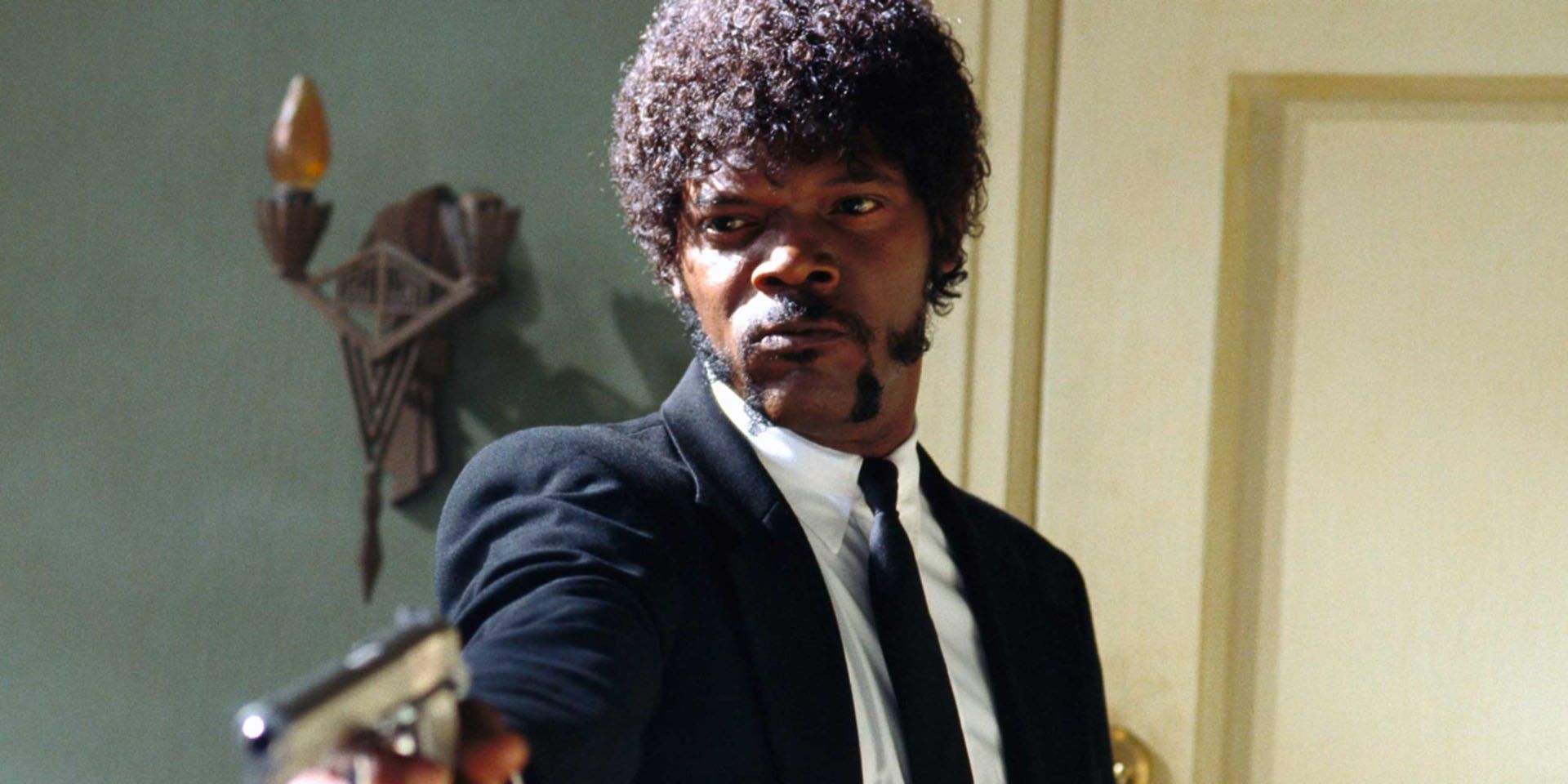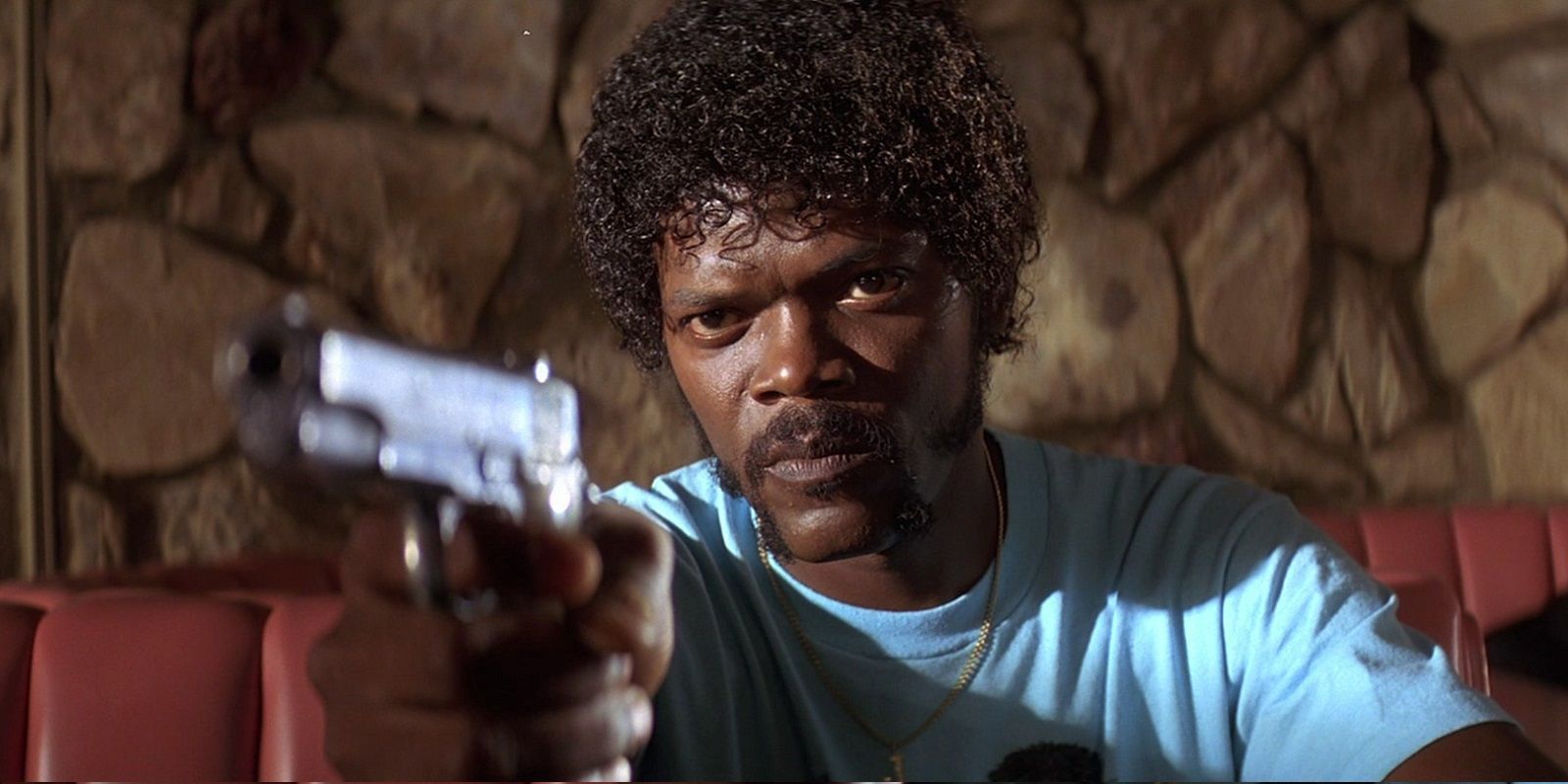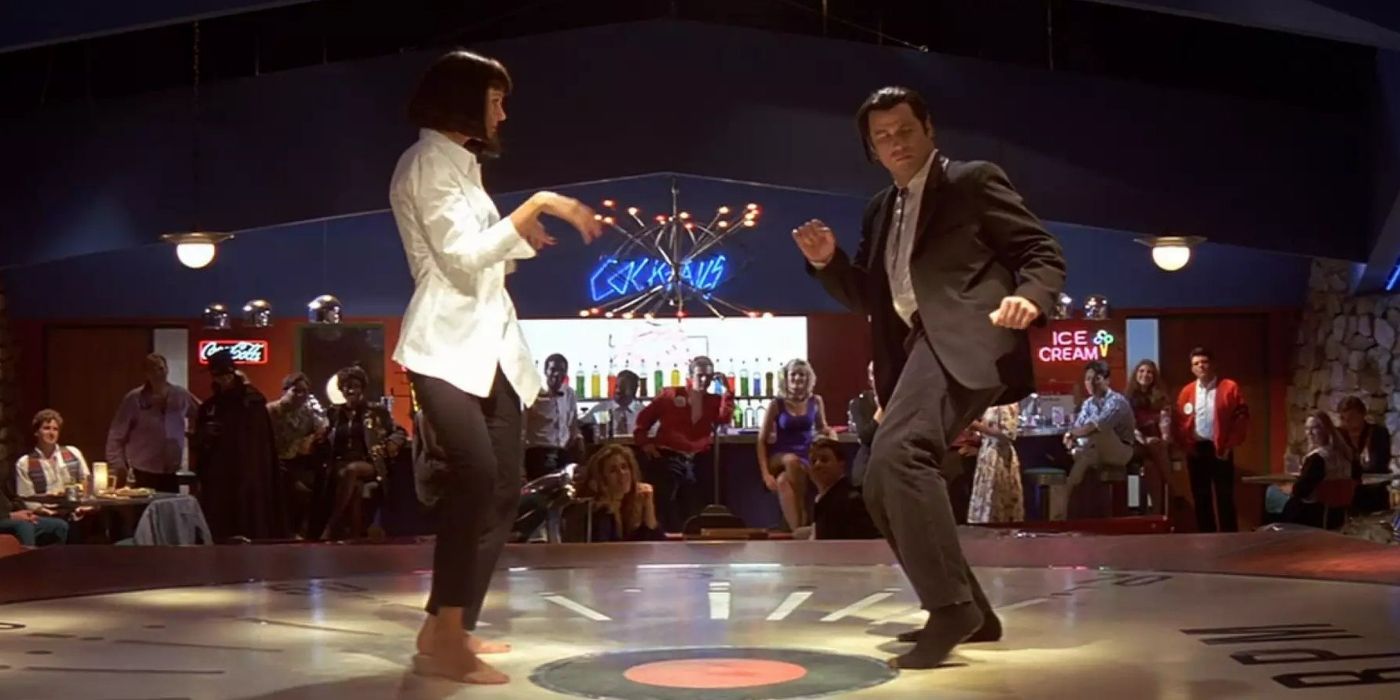Pulp Fiction Ending Explained (In Detail)
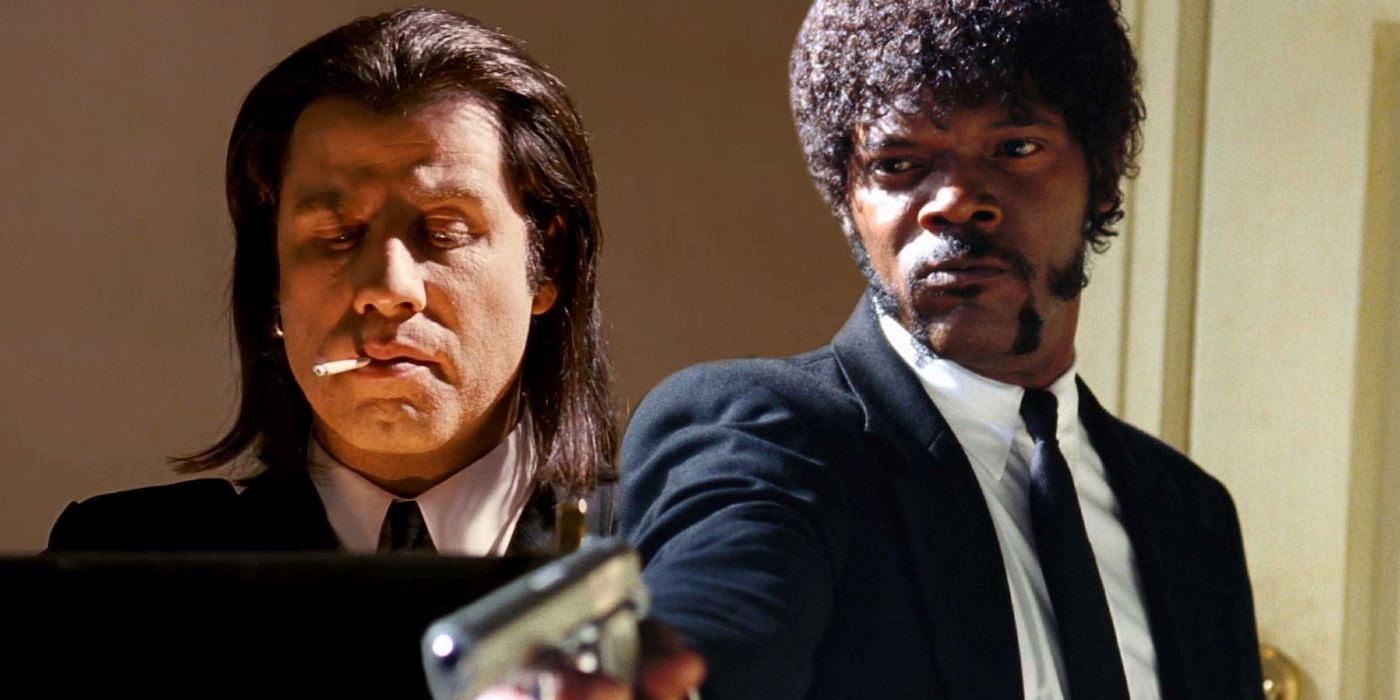
The cultural impact of Quentin Tarantino’s Pulp Fiction explained why the movie was still discussed and debated, including its ending. Tarantino’s second movie is one of the most universally loved films of all time, although the method of storytelling means that its ending is sometimes considered confusing. Pulp Fiction follows various criminal and crooked characters over a short span of time in intertwined stories. Its continued relevance to pop culture and lasting legacy speaks for itself, but its story is engaging and cleverly woven, all leading up to the final moments as the ending of Pulp Fiction explained how it all connects.
The inescapable appeal of Pulp Fiction has led to an incredibly passionate contingent among its wider audience. Over the years since its 1994 release, there has been endless debate over the exact meaning of certain scenes, the spinning of various Pulp Fiction fan theories, and thorough analysis of practically every shot in the film. However, due to the non-chronological manner of storytelling that Tarantino opted to take for Pulp Fiction, its ending is sometimes considered relatively confusing. In addition, Tarantino is known for his love of deep and symbolic narrative devices within his movies, meaning that there’s far more to Pulp Fiction‘s ending than meets the eye.
Pulp Fiction’s Story In Chronological Order
Pulp Fiction‘s story is broken up into seven episodes that make up four distinct stories. The film begins with a prologue scene set in a diner, then moves on to two separate episodes that make up the story of “Vincent Vega and Marsellus Wallace’s Wife”. After this, there are two narrative sequences that make up “The Gold Watch” story, then “The Bonnie Situation”, and finally an epilogue set that picks the diner story back up.
To put Pulp Fiction‘s story in chronological order, these seven episodes need to be reordered. The flashback sequence of “Prelude to the Gold Watch” comes first chronologically, followed by “Vincent Vega and Marsellus Wallace’s Wife” prelude. “The Bonnie Situation” comes next, followed by the two “The Diner” scenes. The present day section of the prelude to “The Gold Watch” comes next, followed by “Vincent Vega and Marsellus Wallace’s Wife”. After this is “The Gold Watch”, which is the chronological end to Pulp Fiction‘s story.
What Was In The Briefcase In Pulp Fiction?
Perhaps the biggest question left entirely unanswered by Pulp Fiction is exactly what was in Marsellus Wallace’s stolen briefcase. There are numerous prominent theories about the contents of the Pulp Fiction briefcase, with one of the most well-known being that it contains the soul of Marcellus Wallace. There are also theories that it may contain numerous other items, including the diamonds from the heist in Reservoir Dogs, gold bars, the Holy Grail, and even Elvis Presley’s gold suit.
However, Quentin Tarantino himself has explained that there is no real explanation. The entire purpose of the briefcase is to serve as a MacGuffin – an object that exists solely to further the plot of its movie – and therefore, the exact contents don’t actually matter. Though the years of rampant speculation about the exact contents of the briefcase that Vincent and Jules acquire are certainly interesting, the truth is that it’s actually entirely irrelevant.
Why Butch Kills Vincent In Pulp Fiction
One of the more shocking narrative twists in Pulp Fiction is the death of Vincent Vega. After Butch betrays Marsellus by stealing his money and winning the fight he was supposed to lose, Marsellus and Vincent stake out Butch’s home to try to catch him. Marsellus leaves and Vincent decides to use Butch’s bathroom (a side effect of his heroin addiction is constipation, and it’s something of a running joke that bad things happen when Vincent goes to the bathroom). It’s then that Butch returns home, finds Marsellus’s gun, and uses it to kill a surprised Vincent Vega as he emerges from the bathroom.
Though the unlucky bathroom breaks of Pulp Fiction‘s Vincent Vega are something of a joke, his death is both sudden and surprising. Though it might seem that Butch had some greater purpose for killing Vincent, he’s mostly acting on instinct. Knowing that Marsellus Wallace would be prepared to kill him for his betrayal, and knowing that there was someone in his home likely waiting to do just that, Butch opened fire in an act of self-preservation. Vincent’s death speaks as much to his own bad luck as it does to Butch’s powerful motivation to make off with his ill-gotten gains.
Ezekiel 25:17: What Pulp Fiction’s Bible Quote Means
Throughout Pulp Fiction‘s story, Samuel L. Jackson’s Jules can be heard quoting a Bible verse, which he identifies as Ezekiel 25:17. The verse quoted by Jules is a version written specifically by Tarantino to cover the themes of redemption and salvation that are central to Jules’ story. The exact quote reads: “The path of the righteous man is beset on all sides by the inequities of the selfish and the tyranny of evil men. Blessed is he who, in the name of charity and goodwill, shepherds the weak through the valley of the darkness, for he is truly his brother’s keeper and the finder of lost children. And I will strike down upon thee with great vengeance and furious anger those who attempt to poison and destroy My brothers. And you will know I am the Lord when I lay My vengeance upon you.” As Vincent and Jules are in the process of reclaiming Marsellus Wallace’s briefcase from Brett when it’s first recited by Jules, the quote’s initial purpose is to simply scare their victim.
However, over the course of the film’s story, it becomes clear to Jules that the quote has a much more profound meaning, and that he should retire from his life of crime to live a more peaceful existence. This is ultimately what saves his life, as it means he’s not present for the events that lead to Vincent’s death. The themes of retribution and salvation touched upon in the fake Bible verse directly translate to the characters of Pulp Fiction and their respective stories, making Jules’ recital of the fictional Ezekiel 25:17 seem particularly prescient.
Pulp Fiction Ending’s Real Meaning Explained
As Pulp Fiction‘s scenes tell its story out of sequence, it effectively has two endings: the chronological one, and the literal final scene of the film. The film’s epilogue scene shows the resolution of the hold-up in the diner, and serves as the ending for Samuel L. Jackson’s Jules. Having chosen to leave his criminal life behind him, Jules resolves the situation with Pumpkin and Honey Bunny peacefully, showing that he has put himself on the path to redemption. This is mirrored in the chronological ending, in which Butch rides off into the sunset with his winnings to presumably start a new life with Fabienne.
Both of Pulp Fiction‘s endings follow the same theme: a man who has committed a number of misdeeds makes a righteous choice, and he is rewarded with a happy ending. Jules chooses to spare Pumpkin and Honey Bunny, and Butch goes back to save Marsellus’s life, earning their happy endings. Marsellus also chooses to allow Butch to leave peacefully, which could also be considered in a similar light. Though the Bible verse of Ezekiel 25:17 may have been rewritten for the film, it proves to be absolutely paramount in understanding the deeper meaning behind Pulp Fiction‘s ending.
Quentin Tarantino Thinks Pulp Fiction Was Trying Too Hard
Though Pulp Fiction explained why Quentin Tarantino was one of the most important new voices in Hollywood, the filmmaker doesn’t think as highly of the movie as some of his fans. Looking back on the movie (via: ReelBlend Podcast) Tarantino admits he has trouble not seeing some of the issues with Pulp Fiction. In comparison to his Elmore Leonard adaptation Jackie Brown, Tarantino suggests, “opposed to Pulp Fiction, it wasn’t trying to blow your mind.” It is an interesting point as Jackie Brown didn’t receive the same kind of attention as Pulp Fiction on its release but has since become one of Tarantino’s most rewatchable movies because of its “hang-out” quality which is very different from Pulp Fiction‘s bombastic approach.
Tarantino also pointed to another flaw he has trouble overlooking in Pulp Fiction being his own direction of the movie. He suggests that instead of choosing interesting cinematic shots for the movie, he is “just capturing” the actors performing his impressive dialogue. In fact, he again points to Jackie Brown as the movie in which Tarantino started to truly become a filmmaker.
While there are some valid points in what Tarantino says, he also likely has trouble removing himself from the conversation. While Pulp Fiction might have been trying to “blow your mind” it also largely succeeded and introduced Tarantino in a big way. As for his direction in Pulp Fiction, while he has improved over time, Tarantino still makes that movie with a slick and confident eye that many working filmmakers would envy.
Share this news on your Fb,Twitter and Whatsapp
NY Press News:Latest News Headlines
NY Press News||Health||New York||USA News||Technology||World NewsTimes News Network:Latest News Headlines
Times News Network||Health||New York||USA News||Technology||World News
